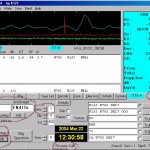 It's our post-Hamvention episode and it's packed with great information. We start off with a look at hams in the news, special event stations for all Canadian operators, the legalities and procedures for proper third-party operation. Then we move into a comparison of Linux live update procedures and the latest news about Raspberry Pi Zero boards. Then we take a tour of the JT9 and JT65 digital modes using WSJT-X. And there's so much more. Thanks for listening!
It's our post-Hamvention episode and it's packed with great information. We start off with a look at hams in the news, special event stations for all Canadian operators, the legalities and procedures for proper third-party operation. Then we move into a comparison of Linux live update procedures and the latest news about Raspberry Pi Zero boards. Then we take a tour of the JT9 and JT65 digital modes using WSJT-X. And there's so much more. Thanks for listening!
73 de The LHS Crew
Podcast: Play in new window | Download
